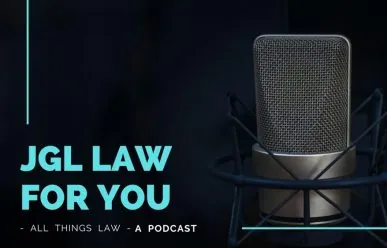Mental Health Privilege & Maryland Divorce Blog Law Series – Part 4
This blog series discusses mental health privilege (the confidentiality a client has/clients have with their mental health provider) in contested family litigation (such as divorce and custody).
To recap:
A “privilege” is the legal right to protect a communication from disclosure & to keep information confidential. Privileged information cannot be used in contested litigation unless the privilege is waived.
Privilege attaches when certain types of professionals provide mental health services. Not everyone who is a “counselor” or “therapist” qualifies as a privileged provider. The scope of privilege depends upon the type of provider, and inadvertent disclosure of privileged information is a risk.
This blog explores “the what” – what is not protected by the privilege.
I’ll explore 3 categories of what isn’t privileged:
- What the privilege statutes say
- What the case law says
- What experience says
Privilege Statutes
Each of the 3 privilege statutes creates exceptions to the privilege, with the relevant ones to family law litigation here:
- A judge finds that the patient, after being informed there will be no privilege, makes communications in the course of an examination ordered by the court and the issue at trial involves his mental or emotional disorder
- In a civil or criminal proceeding…the patient introduces his mental condition as an element of his claim or defense
- The patient expressly consents to waive the privilege…
These boil down to:
- Court-ordered mental health/psychiatric evaluation or testing
- Mental health as a claim or defense
- Express waiver
Parental fitness is a claim and defense in every custody case. Mental health is a facet of fitness. Never fear – case law is here to clear that up (see below).
More interesting than the stated exceptions…what the statutes don’t say.
§9-109 (psychologist, psychiatrist) and §9-109.1 (psychiatric-mental health nursing specialist, professional counselor) are narrower privileges than §9-121 (social worker), protecting only:
- Communications relating to diagnosis or treatment of the patient or client; or
- Any information that by its nature would show the existence of a medical record of the diagnosis or treatment
So, not everything is privileged. See below (case law & experience) for examples of unprotected information.
As discussed previously, the social worker privilege is so broad that, to my reading, everything is privileged. And, as will be discussed, the law does not recognize partial waiver. So, if one intends to maintain privilege with a social worker, one must be diligent regarding inadvertent disclosure.
Case Law
As discussed above, when interpreting and applying our privilege statutes, our appellate courts make law in result.
Laznovsky v. Laznovsky, 357 Md. 586 (2000), tells us that claims of parental fitness or unfitness in a custody case doesn’t, alone, waive privilege. (I’d forgotten, or hadn’t appreciated before, that until 1977 Judges could compel mental health records in a custody case without privilege waiver.) Otherwise put, participation in a custody case, with the inevitable accompanying allegations of parental fitness or unfitness, does not introduce mental condition as an element of a claim or defense that waives privilege.
Other non-privileged information:
- Prescriptions (Reynolds v. State, 98 Md.App. 348 (1993))
- Group therapy (Reynolds v. State, 98 Md.App. 348 (1993))
- Group therapy should be distinguished from family therapy (though I’ve yet to find Maryland law that does so explicitly) and couples therapy
- Group therapy is among strangers
- Family and couple’s therapy are among family members/people in relationship
- Family therapy is privileged (Board of Physicians v. Eist, 176 Md.App. 82 (2007)) and by extrapolation so is couples therapy
- Dates of service (Shady Grove v. Maryland, 128 Md.App. 163 (1999))
- Statements made to other patients during hospital stay (Reynolds v. State, 98 Md.App. 348 (1993))
Experience
In my experience, the following aren’t privileged either (except for social work privilege):
- Name of provider
- What prompted the patient to seek therapy
- Communications & behavior unrelated to diagnosis or treatment, especially outside of therapy sessions and with non-privileged staff (i.e. scheduling, arrival/departure, payment, appropriateness, etc.)
- Bills (minus diagnosis)
- EOBs/Explanation of benefits (minus diagnosis)
- If a child’s therapy, who dropped off, picked up, and how behaved/what communicated
The Takeaways
- Except for social workers and their expansive privilege, other mental health providers may have both privileged & non-privileged information
- So, they may be able to testify about limited information & produce limited records, even if privilege isn’t waived
- Privilege attaches when both the provider & the service performed are privileged
Up next: The “who”: Who holds the privilege and can waive it?



